- Home
- Daphne Du Maurier
The Winding Stair: Francis Bacon, His Rise and Fall Page 11
The Winding Stair: Francis Bacon, His Rise and Fall Read online
Page 11
He continued with a blistering attack not against the prisoner Talbot, who was not accused of personal disloyalty, but upon Papal power that could cause disruption amongst his Majesty’s Catholic subjects so that they became bewildered as to where their true obedience lay. ‘The allegiance of his subjects is pinned upon the Pope’s acts. And certainly, ’tis time to stop the current of this opinion of acknowledgement of the Pope’s power in temporalibus, or else it will sap and supplant the King’s seat… As for the point of matter of faith… is nothing exempted from it? If a man should ask Mr. Talbot whether he do condemn murder, or adultery, or rape, or the doctrine of Mahomet… must the answer be… that therein he will submit himself to what the Church shall determine?’
He concluded with some gracious words towards the prisoner himself. ‘I know my Lords out of their accustomed favour will admit you not only to your defence concerning that that hath been charged, but to extenuate your fault by any submission that now God shall put into your mind to make.’
In the event, William Talbot was released and returned to Ireland, nor does it seem that he paid the fine of £10,000 imposed upon him.
Meanwhile Parliament had at last been summoned for April 5th, and, as Chamberlain wrote on March 3rd, ‘Here is much jostling for places in Parliament,’ which for once was without exaggeration, for when the elected members assembled two-thirds had never served in Parliament before. This boded ill for the traditional style of Parliament that Francis had hoped to see restored, for the country and the sovereign’s sake. He himself had been returned for three seats, St. Albans, Ipswich and Cambridge university—the venison had brought its reward—but he very nearly sat for none of them, as questions were raised as to whether an Attorney-General should hold a seat in the Commons, a state of affairs for which there was no precedent. A committee was formed, the matter was discussed, and finally it was agreed that the Attorney-General should be permitted to attend. He took his place as member for the university, but it was an embarrassing start to the new session, with so many new faces, and the usual air of decorum noticeably absent. A further misfortune, so Francis felt, and some others too, was that his Majesty had at last chosen a new Secretary of State to replace the Earl of Salisbury, in the person of Sir Ralph Winwood, who, although he had been a minister in both France and Holland, had no experience of Parliament or government, and little grace of personality.
However, it was not the fault of the new Secretary of State that the session, known later as the Addled Parliament, was disastrous from start to finish. Dissent was rife amongst the members and no one could agree about anything. A motion for supply—for which the Attorney-General made an excellent but moderate speech, suggesting that the question should be put to a committee of the whole House—was deferred; Sir Henry Neville’s faction, called the Undertakers, were accused of desiring to undermine the authority of Parliament by ingratiating themselves with the sovereign; the Upper House refused to confer with the Lower House; the Speaker fell sick, and small wonder; finally his Majesty himself, who had shown considerable patience up to the present, announced his intention of dissolving Parliament unless they proceeded at once to discuss the question of supply.
The faithful Commons, shocked and concerned, still failed to agree, and Parliament was dissolved on June 7th. The Attorney-General, who had advised the monarch the year before in his private letter to ‘part with his Parliament in love and reverence’, saw his worst fears realised. Sovereign and Commons could hardly have been on less agreeable terms.
The Archbishop of Canterbury, all credit to him, then stepped into the breach with a suggestion that every bishop in the country should ‘send unto the King the best piece of plate he had’, and doubtless the humbler sort of clergy would follow suit, as well as judges, aldermen and persons of note throughout the land. Which indeed some of them did, though not to any great extent, and the generosity of these private individuals hardly helped the Exchequer. The money was paid into the Jewel House at the Tower, and whether it then passed into the royal purse we are not told; but the Earl of Northampton, who had been caretaker of the Treasury since Salisbury died, suddenly died himself of a swelling in his thigh which had turned ‘venomous’, and the King at once promoted the Earl of Suffolk in his stead. Suffolk’s son-in-law Somerset became Lord Chamberlain, and there was a re-shuffle later amongst two other ministers, Sir Fulke Greville, poet and friend of Francis Bacon, becoming Chancellor of the Exchequer in place of Sir Julius Caesar, who was now Master of the Rolls.
Parliament dissolved, there was no immediate business for the Attorney-General, but a quotation from a speech he was preparing on deer-stealing in the forest of Gillingham gives a brief, rather typical indication of how a man in his position felt on such a subject in the year 1614. ‘Forests, parks, and chases, they are a noble portion of the King’s prerogative: they are the verdure of the King, they are the first marks of honour and nobility, and the ornament of a flourishing kingdom… It is a sport proper to the nobility and men of better rank; and it is to keep a difference between the gentry and the common sort; and so I hold this fault [of poaching] not vulgar. [These forests] are an excellent remedy against surcharge of people and too many inhabitants, that the land through it grow not to sluttery, etc. And these green spots of the King are an excellent ornament to the beauty of the realm.’
No sluttery, we may safely assume, at Gorhambury, where Francis Bacon could relax in the company of his lady and his closer friends—though Tobie Matthew was still absent in Italy. No persons, either, of the common sort at Apethorpe, Sir Anthony Mildmay’s house, where that August his Majesty was entertained, and introduced to an exquisite young man of twenty-two named George Villiers, younger son of Sir George Villiers of Brooksby. He was no horseman, but he fenced and danced well, and his manners were modest and delightful. His Majesty was charmed.
The sun was about to sink below the horizon for Robert Carr, Earl of Somerset.
10
While the usual masques took place on Twelfth Night 1615, and young George Villiers hovered around at Court, hoping to catch the eye of his Majesty—who soon removed himself to hunt at Royston—Francis Bacon found himself engaged in preparing two cases of prosecution for treason, to be brought against Edmund Peacham, a minister of the church, who held the living of Hinton St. George in Somerset, and Oliver St. John, a gentleman from Marlborough. Edmund Peacham had not only made certain charges against the Bishop of Bath and Wells, but had written a pamphlet, intended for the press, containing accusations against the patron who had presented him with the living—a grandson of Sir Amias Paulet, the ex-ambassador in whose service Francis had travelled as a young man—and reviling the King and the royal family into the bargain. His papers had been seized, and he had been committed to the Tower.
Oliver St. John’s fault was equally serious. Furious at the action of those loyal gentlemen the preceding autumn who had sent gifts to bolster up the King’s finances, he wrote a public letter to the Mayor of Marlborough roundly denouncing them, and accusing his Majesty of violating his oath to the people. In consequence he too found himself in the Tower.
Sedition and treason were synonymous in his Majesty’s eyes. His Attorney-General knew this, and had every sympathy with the sovereign. He was particularly concerned also that his old friends the Paulet family should have been dragged into the Peacham affair. On January 21st the Attorney-General, with the Secretary of State, the Master of the Rolls and other officials of the Council, went to the Tower to question Peacham, and, as was the custom of the day, the unfortunate minister of Hinton St. George was ‘put to the torture’. He denied all the allegations, and Francis wrote to the King, ‘It grieveth me exceedingly that your Majesty should be so much troubled with this matter of Peacham, whose raging devil seemeth to be turned into a dumb devil. But although we are driven to make our way through questions, yet I hope well the end will be good.’
The end was some way off, for the case was not straight-forward. The Council had, it
seemed, acted prematurely in questioning the prisoner without consulting the judges, and the judges were not agreed that the accusation to be brought against the prisoner should be that of treason. Francis, as Attorney-General, was obliged to consult in private with Lord Chief Justice Sir Edward Coke, and report back to the King.
It was inevitable, perhaps, that the mutual dislike and mistrust between the two men should colour every discussion they ever held. The interview could hardly be called a success. The Attorney-General insisted that Peacham should be indicted for treason, while the Lord Chief Justice took copious notes and would not commit himself, saying he would deliver his opinion in writing. When he did, the gist of his opinion was ‘that no words of scandal or defamation, importing that the King was utterly unworthy to govern, were treason, except they disabled his title’.
There were some weeks of delay, and on March 10th Peacham was examined once more. This time he went so far as to deny that the seditious papers had been written by him at all, and maintained that they were by quite another man who bore the same name, had stayed with him some years past, and must have left his papers lying about the house! Francis, reporting to his Majesty, wrote, ‘This miscreant wretch goeth back from all, and denieth his hand and all… but this denial of his hand, being not possible to be counterfeited, and to be sworn by Adams [a witness] and so oft by himself formally confessed and admitted, could not mend his case before any jury in the world; but rather aggravateth it by his notorious impudency and falsehood, and will make him more odious.’ The hearing of the case was postponed until the Somerset assizes the following August, in which the Attorney-General had no part. Peacham was condemned for high treason but not hanged, and died in Taunton prison seven months later.
The second case of treason, that of Mr. St. John of Marlborough who had protested against gifts of money being sent to the King, came up for hearing in the Star Chamber at the end of April. The Attorney-General delivered a speech in forceful style, accusing the prisoner of seditious libel, ‘a wicked and seditious slander, or (if I shall use the Scripture phrase) a blaspheming of the King himself; setting him forth for a prince perjured in the great and solemn oath of his coronation, which is as it were the knot of the diadem; a prince that should be a violator and infringer of the liberties, laws, and customs of the kingdom; a mark for an Henry the Fourth; a match for a Richard the Second…’
The Star Chamber passed a sentence of life imprisonment and a fine of £5,000. Two months later Oliver St. John made a full acknowledgement of his fault, and some time afterwards was released from the Tower.
Yet a third indictment of high treason was heard in the King’s Bench on May 17th against one John Owen, a recusant (a Catholic who refused to attend the Church of England or admit the King’s sovereignty), at whose trial the Attorney-General also spoke very earnestly, the case being similar to that against William Talbot, indicted for the same reason early in January. Owen was condemned, but like the others never hanged, and released after three years on condition he left the country.
Term ended, and Francis Bacon was able to relax once more at Gorhambury, relieved doubtless that the prosecutions for treason had been disposed of without great difficulty and his Majesty spared much trouble and annoyance. He could not foresee that a case far more serious than any of those tried hitherto, implicating the King to a highly embarrassing extent, would engage the attention of the whole country by the autumn.
The trouble started with a rumour, which, spreading during the late summer, came to the ears of the Secretary of State, Sir Ralph Winwood. This rumour was to the effect that Sir Thomas Overbury, the one-time close friend of the Earl of Somerset who had been imprisoned in the Tower two years previously and had died rather suddenly on September 15th 1613, had not died from natural causes, as had been supposed, but by poison administered to him by persons within the Tower.
Sir Ralph Winwood made immediate enquiries of the Lieutenant of the Tower, Sir Gervase Elwes, who at first hedged, saying there had been some intention on the part of the under-keeper Richard Weston to poison the prisoner, but this he had discovered and prevented. Ordered to write a full account of this, Sir Gervase then admitted that he had since heard that the prisoner Overbury had indeed been poisoned, by an enema impregnated with arsenic supplied by an apothecary’s boy, and he, Elwes, had kept the information to himself for fear of impeaching certain ‘great persons’. These great persons were, it seemed, the Earl and Countess of Somerset.
The rumour was no longer a rumour, and could not be suppressed. The Secretary of State informed his Majesty, who ordered a full enquiry, and the whole affair was put into the hands of that highest justice in the land, Sir Edward Coke.
Whether indeed the King would have ordered such an enquiry in 1613, when Overbury died, seems extremely doubtful. The Earl of Somerset was then in high favour, and about to marry the Countess of Essex. The relationship between monarch and favourite had changed since the marriage. Somerset had become overbearing and difficult, and the engaging young George Villiers, promoted to be a gentleman of the bedchamber, was greatly liked not only by the King but by Queen Anne as well, who had always been on bad terms with Somerset. Thus what might have been disastrous for King James in 1613, had the truth of the murder become public knowledge, was now, in 1615, more in the nature of an acute embarrassment. He could only hope that Chief Justice Coke would handle the matter with discretion, and that the minor persons involved in the murder would be arrested, tried and punished, and there would be an end of the whole sorry business.
It was not to be. The commission of enquiry, set up by Coke, found that there had been several attempts to poison Sir Thomas Overbury, before the fatal enema of arsenic, and that these had come from the kitchens within the Tower, supplied by a certain Mrs. Turner, known personally to the Countess of Somerset.
Mrs. Turner was arrested. So were Richard Weston and the Lieutenant of the Tower, Sir Gervase Elwes. At this point the Earl of Somerset lost his nerve and implicated himself by sending a constable to Mrs. Turner’s house to seize her papers, with the intention of destroying them. On learning of this deliberate defiance of the law, the commission of enquiry committed the earl to custody.
There was small hope of hushing things up now, and Chief Justice Coke was intent upon bringing down the haughty earl and his countess (who, incidentally, was now pregnant), besides the smaller fry who were actually indicted for complicity in the murder.
These minor persons were tried and disposed of first. They had all confessed: Weston, the under-keeper, had administered the poison; Mrs. Turner had sent it; the apothecary had supplied it to Mrs. Turner; the Lieutenant of the Tower, Sir Gervase Elwes, had connived at the administration. They were all hanged at the beginning of November.
So far his Majesty’s Attorney-General, Sir Francis Bacon, had taken no part in the proceedings; Lord Chief Justice Coke had been in charge. Francis first became involved after the execution of the keeper Weston, when two friends of the Earl of Somerset were arrested for unlawfully questioning the wretched man on the scaffold and endeavouring to wring a final confession from him. This was an unprecedented offence, and the two allies, Sir John Wentworth and Sir John Hollis, appeared in the Star Chamber and were charged by the Attorney-General with obstructing justice. ‘Of the offence of these two gentlemen in general, your lordships must give me leave to say, that it was an offence greater and more dangerous than is conceived. I know well that as we have no Spanish inquisitions, nor justice in a corner, so we have no gagging of men’s mouths at their death; but that they may speak freely at the last hour. But then it must come from the free motion of the party, and not by temptations of questions. The questions that are to be asked ought to tend to further revealing of their own or others’ guiltiness. But to use a question in the nature of a false interrogatory, to falsify that which is res judicata [a case already decided] is intolerable.’
Wentworth and Hollis received a sentence from the Star Chamber but were later pardoned,
and it was not until after the new year, in January 1616, that Francis had an interview with his Majesty to give him his own frank opinion of the evidence that had so far been brought implicating the Earl of Somerset in the affair of the poisoning. The earl meanwhile had been relieved of his seals of office and committed to the Tower, while his countess had given birth to a daughter on December 9th.
‘I said to your Majesty,’ Francis wrote on January 22nd, ‘that which I do now repeat, that the evidence upon which my Lord of Somerset standeth indicted is of a good strong thread, considering impoisoning is the darkest of offences; but that the thread must be well spun and woven together. For your Majesty knoweth that it is one thing to deal with a jury of Middlesex and Londoners, and another to deal with the peers; whose objects perhaps will not be so much what is before them in the present case, which I think is as odious to them as to the vulgar, but what may be hereafter…
‘Two things… I do in all humbleness renew. First, that your Majesty will be careful to choose a steward of judgement, that may be able to moderate the evidence and cut off digressions; for I may interrupt, but I cannot silence. The other, that there may be special care taken for the ordering of the evidence, not only for the knitting, but for the list, and—to use your Majesty’s own word—the confining of it. This to do, if your Majesty vouchsafe to direct it yourself, that is the best; if not, I humbly pray you to require my Lord Chancellor, that he together with my Lord Chief Justice will confer with myself, and my fellows, that shall be used, for the marshalling and bounding of the evidence, that we may have the help of his opinion, as well as that of my Lord Chief Justice; whose great travels as I much commend, yet that same plerophoria, or over-confidence, doth always subject things to a great deal of chance.’

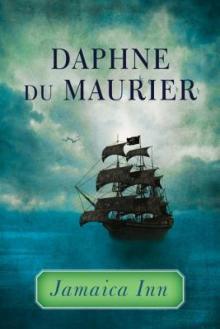 Jamaica Inn
Jamaica Inn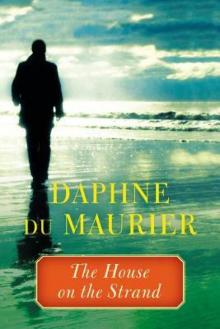 The House on the Strand
The House on the Strand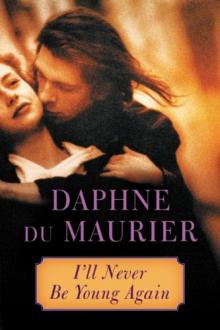 I'll Never Be Young Again
I'll Never Be Young Again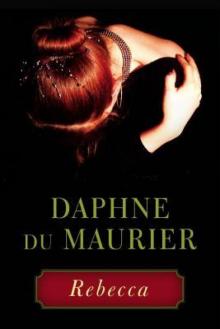 Rebecca
Rebecca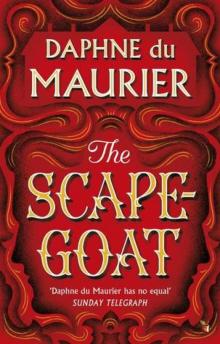 The Scapegoat
The Scapegoat The Birds and Other Stories
The Birds and Other Stories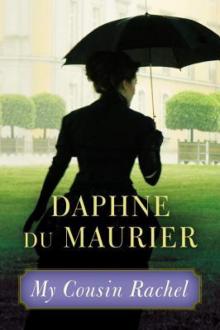 My Cousin Rachel
My Cousin Rachel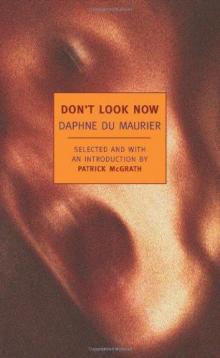 Don't Look Now
Don't Look Now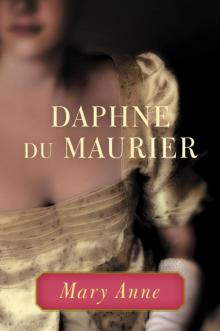 Mary Anne
Mary Anne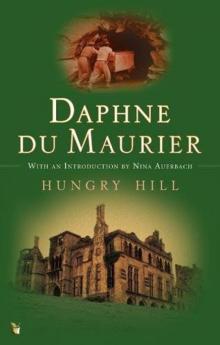 Hungry Hill
Hungry Hill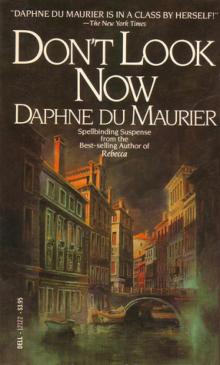 Don't Look Now and Other Stories
Don't Look Now and Other Stories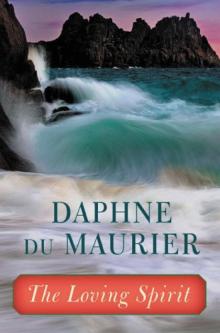 The Loving Spirit
The Loving Spirit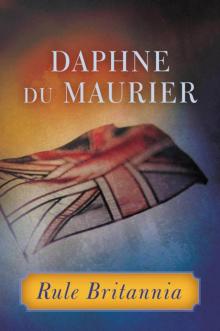 Rule Britannia
Rule Britannia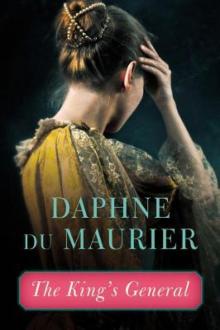 The King's General
The King's General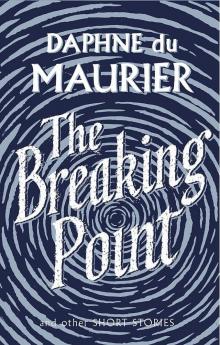 The Breaking Point: Short Stories
The Breaking Point: Short Stories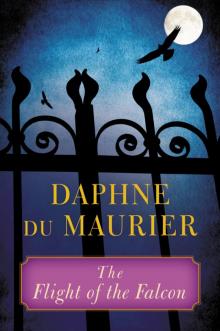 The Flight of the Falcon
The Flight of the Falcon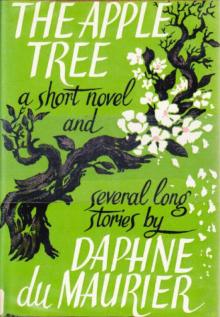 The Apple Tree: a short novel & several long stories
The Apple Tree: a short novel & several long stories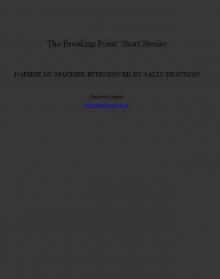 The Breaking Point
The Breaking Point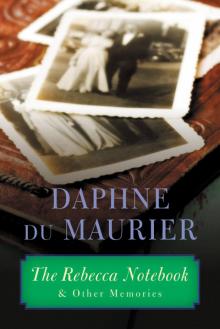 The Rebecca Notebook
The Rebecca Notebook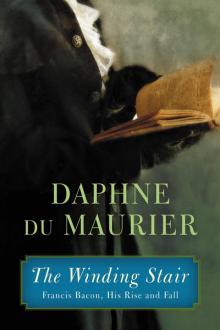 The Winding Stair: Francis Bacon, His Rise and Fall
The Winding Stair: Francis Bacon, His Rise and Fall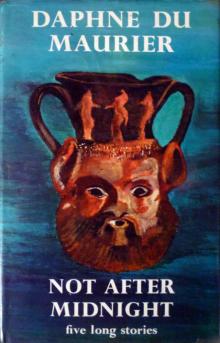 Not After Midnight & Other Stories
Not After Midnight & Other Stories The Doll
The Doll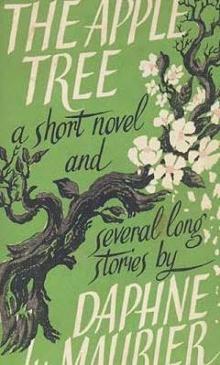 The Apple Tree
The Apple Tree